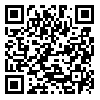Semi-Annual
Back to the articles list |
Back to browse issues page
Department of Conservation and Restoration, Research Center for Conservation and Restoration of Cultural Relics, Tehran, Iran , ealimirzaei@yahoo.com
Abstract: (498 Views)
Abstract: The book "Ethical Approaches to Human Remains: A Global Challenge in Bioarchaeology and Forensic Anthropology" (2019), edited by Kirsty Squires, David Errickson, and Nicholas Márquez-Grant (Springer Publications), provides a comprehensive examination of the ethical, legal, and cultural challenges surrounding human remains in the fields of bioarchaeology, forensic anthropology, and museum studies. Adopting an international and interdisciplinary approach, the work explores critical issues including postmortem human dignity, indigenous rights concerning ancestral remains, ethical dilemmas in genetic sampling, considerations for public display of remains, and the management of remains from war crimes and mass disasters.
Structured in three main sections, the book first addresses philosophical and theoretical foundations of ethics (covering topics such as the moral status of the deceased and human rights). The second section examines practical challenges in research, excavation, preservation, and exhibition of remains. The third section presents case studies from diverse global contexts (including the Americas, New Zealand, Spain, and the Middle East), analyzing region-specific ethical approaches.
Among the book's strengths are its balanced integration of theory and practice, emphasis on cross-cultural dialogue, and provision of actionable policy recommendations. However, its relative lack of focus on certain regions like the Middle East and emerging issues such as digitalization of remains represents a limitation. This volume serves as an invaluable resource for archaeologists, forensic specialists, museum professionals, and cultural heritage policymakers. It offers particularly relevant insights for developing ethical protocols in countries like Iran that currently lack formalized frameworks in this domain.
Structured in three main sections, the book first addresses philosophical and theoretical foundations of ethics (covering topics such as the moral status of the deceased and human rights). The second section examines practical challenges in research, excavation, preservation, and exhibition of remains. The third section presents case studies from diverse global contexts (including the Americas, New Zealand, Spain, and the Middle East), analyzing region-specific ethical approaches.
Among the book's strengths are its balanced integration of theory and practice, emphasis on cross-cultural dialogue, and provision of actionable policy recommendations. However, its relative lack of focus on certain regions like the Middle East and emerging issues such as digitalization of remains represents a limitation. This volume serves as an invaluable resource for archaeologists, forensic specialists, museum professionals, and cultural heritage policymakers. It offers particularly relevant insights for developing ethical protocols in countries like Iran that currently lack formalized frameworks in this domain.
Keywords: Human Remains, Ethics in Archaeology, Bioarchaeology, Forensic Anthropology, Museum and Heritage Studies, Global Ethical Challenges
Technical Note: Book Review |
Subject:
Conservation Science
Received: 2025/04/18 | Accepted: 2025/05/21
Received: 2025/04/18 | Accepted: 2025/05/21
| Rights and permissions | |
 |
This work is licensed under a Creative Commons Attribution-NonCommercial 4.0 International License. |




